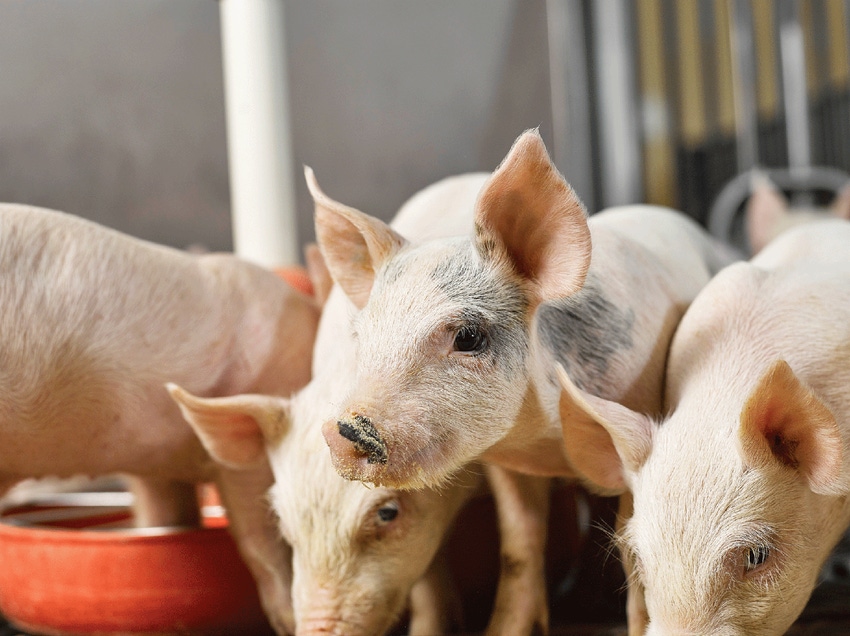Innovation can arise from pig production adversity
CVS seeing some promise with novel adjuvants for Streptococcus suis vaccination of piglets.
December 26, 2023

By Carthage Veterinary Service
Nearly every adult has suffered a job or business-related loss at some point that has forced a retreat and reexamination of the situation, to see what they may be able to improve, add or cut to best move forward. It’s no different for swine producers.
Aaron Lower, DVM, president of Carthage Veterinary Service, and Bill Hollis, DVM, president of Professional Swine Management weighed in with an overview of the industry this past year, and what may be ahead on the path through 2024.
What lessons can the industry take from the adversity we faced this year?
BH: Very tight years can really stress the need for disciplined margin management. And by that, I mean looking out ahead and determining your cost of production. We know everyone is working hard at reducing that figure, and on the feed and labor side they may have exceeded even early budgets.
It can be tough, and when there hasn’t been a positive margin for nine out of the last 12 months or so, it can be almost impossible to do profitable margin management. However, it is not impossible to do margin floor management. You may not be happy about losing $5 a pig in the fourth quarter, but that may be the best available that we have had all year.
AL: We recognize that it has been a tough year for the industry, but tough times always make us look closer at our system. It helps every talent, every expense and every process to get relooked at in order to try and find opportunities to reduce the red ink, and that’s never a bad exercise.
Despite the challenges, what showed through as a positive in the last year?
AL: I think what is cool about our industry is that it has been really hard for the last 12 months, but you can’t really tell it at the sow farm level. The owners and managers are still doing all the things that they normally would, and should be doing.
The sow farm owners and managers we work with are doing a good job with employee morale, continuing to encourage and reward where they can, despite some lean times. That the employees we talk with also seem positive is a testament to these leaders showing respect, trust and appreciation to the people who are working the farms.
BH: I agree, we have been very happy with the teams and leadership we are seeing on our farms and the farms we work with. The industry has come a long way from the staffing shortages we were seeing a few years ago. Within our walls, we are fully staffed and have been really fortunate with internal development.
I see it across the board — the way a farm rallies around a strong manager is encouraging and reflects in the farm’s production. We have seen trends in health headed in a positive direction this year, and I think a portion of that can be attributed to the teams working day in and day out with these animals.
What excited you about the industry in 2024?
AL: Research into improving swine production has historically centered on new products intended to protect or boost animal health. For now, at least, that part of the innovation pipeline has slowed; I think moving forward it will include some of those controlled product trials, but also just better utilization of our production data, economic data or diagnostic data to put all the pieces together in a commercial environment.
What I am excited about in the future is pulling more of those data streams to make better decisions — about genetics, housing, pig health, treatment, everything.
BH: I am excited about some of the operation opportunities that allow us to reduce labor on the farms, making it easier and faster for employees, but most importantly, safer. If we can innovate things like power-washing or counting pigs, we can get more accurate results with the use of equipment and technology. This allows our employees to focus more on other areas that are more subjective and need the human element.
AL: One of the most commonly diagnosed infections in newly weaned pigs is Streptococcus suis, which has become more of a headache over the last two years, as swine health providers like us have struggled to find good solutions to treat growing pigs. At CVS we are working on more novel adjuvants for the vaccination of piglets — and seeing some early successes.
Every 10 years or so, the industry does a large correction. We are in one of those times now and it can make our industry look dramatically different here in the next year or so as things shake out. These times really show you the importance of having a good partner who is focused on your ROI and helping you have a competitive advantage.
That is an ongoing mission from PSM and CVS alike, to support the producers and clients we work with. We continue to be proud of the swine industry in which we are all working!
You May Also Like



